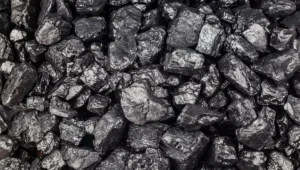Coal India Limited (CIL), the world’s largest coal producer, has announced a price hike of 8% for high-grade coal. The hike will come into effect from June 1, 2023.
The price hike is likely to have a significant impact on consumers, particularly those who use electricity for cooking and heating. The hike is expected to lead to an increase in power tariffs by 12-18 paise per unit.
The price hike is also likely to have an impact on the manufacturing sector. Many industries, such as cement, steel, and aluminum, use coal as a raw material. The price hike is likely to lead to an increase in the cost of production for these industries, which could lead to higher prices for consumers.
The government has said that it is taking steps to mitigate the impact of the price hike on consumers. The government has announced a subsidy of Rs 2 per unit for consumers who use less than 100 units of electricity per month. The government has also said that it is working with CIL to ensure that there is no shortage of coal supply.
However, it remains to be seen how effective these measures will be in mitigating the impact of the price hike on consumers. The price hike is likely to put a strain on the budgets of many households and businesses.
Here are some of the ways in which the Coal India price hike will impact consumers:
- Increased power tariffs: The price hike is likely to lead to an increase in power tariffs by 12-18 paise per unit. This will have a significant impact on consumers, particularly those who use electricity for cooking and heating.
- Higher prices for manufactured goods: Many industries, such as cement, steel, and aluminum, use coal as a raw material. The price hike is likely to lead to an increase in the cost of production for these industries, which could lead to higher prices for consumers.
- The strain on household budgets: The price hike is likely to put a strain on the budgets of many households. This is because many households rely on electricity for cooking and heating. The price hike could force some households to cut back on other expenses, such as food and clothing.
- Businesses may be forced to pass on the costs: The price hike is likely to force businesses to pass on the costs to consumers. This could lead to higher prices for goods and services.
The government has said that it is taking steps to mitigate the impact of the price hike on consumers. However, it remains to be seen how effective these measures will be. The price hike is likely to have a significant impact on consumers, particularly those who are already struggling to make ends meet.
Also, Read
